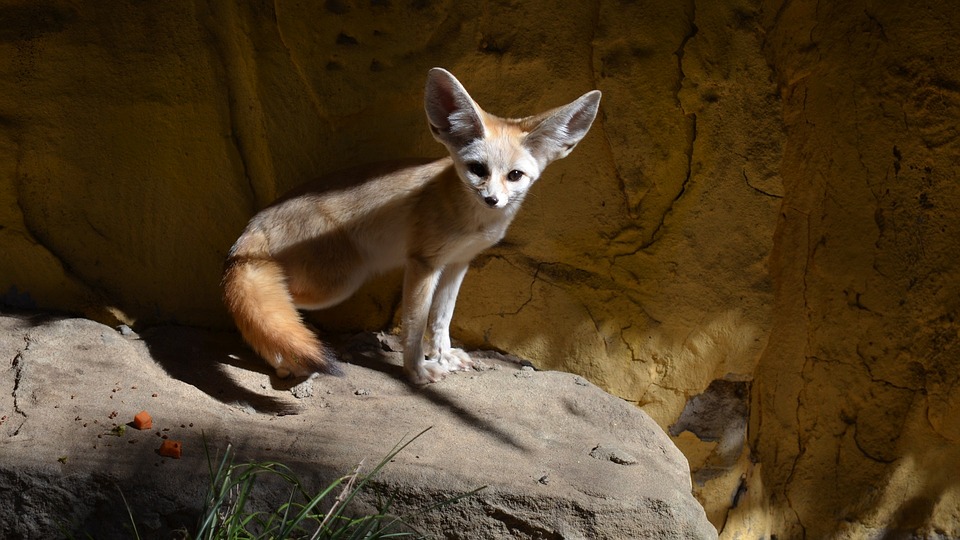Vegan activist and Youtuber, Sonia Sae, has recently caught the attention of the media due to her severely underweight fennec fox pet, Jumanji. Sae adopted, or as she claims, rescued, the fox from a breeder in 2014. The Youtuber makes educational videos about veganism including exposes of the pet food and honey industries.
Sae has posted numerous videos and photographs of her exotic pet on Instagram and has been receiving backlash for many years regarding the standard of health of the animal. What has attracted the most attention, however, is the fact that Sae has brought the animal up on a vegan diet. Domesticated animals should have diets that reflect their natural, wild diet. Fennec foxes, according to the National Geographic, are omnivorous opportunistic eaters, meaning that they eat whatever they can find in their natural habitat, including plants, small rodents, eggs, reptiles and insects. It can be difficult to replicate an animal’s wild diet, particularly if they are naturally ‘opportunistic’, but it is unquestionable that the diet should, at the very least, contain the requirements for the animal to meet its basic dietary needs.
On her Instagram and Facebook pages, Sae has posted about the fox’s worrying health ailments including hair-loss, partial blindness, spontaneous convulsions, skin conditions and severe weight-loss. Despite Sae attributing the hair-loss to ‘seasonal shedding’, albeit fennec foxes do not shed seasonally in the wild, critics and animal activists have put the animal’s health issues down to the vegan diet that it is currently on. Facebook user Alice Natanya Moore has posted an expose on Facebook, to show the condition Jumanji is currently in, alongside healthy fennec foxes in the wild for comparison. Moore’s post, which has been shared over 28,000 times, states that Sae refuses to listen to experts who condemn her treatment of the fox and has called for the removal of Jumanji from Sonia’s care, stating that she “simply want[s] to see Jumanji in better health and being fed a species appropriate diet”.
Sonia responded to critics on her Facebook page, stating that “they use the word abuse to describe the act of feeding him food that no animal had to die for. Despite the obvious oxymoron, any other non-vegan alternative DOES involve abuse by default”. Although it has been proven that some naturally omnivorous animals can thrive on a wholly vegan diet, the fact that her pet is severely malnourished and clearly unwell suggests that Sonia has no option but to adhere to her pet’s natural dietary needs for the sake of its survival.
I hope someone takes that fox away from Sonia Sae. FOXES ARE PRIMARILY CARNIVORES!!! You can't change the dietary requirements of an animal to suit your own beliefs AND IF YOU CANT ACCEPT THAT, DONT ADOPT A CARNIVOROUS ANIMAL. YOU ARE COMPROMISING THEIR WELFARE!
— Alice ツ (@alicefordays) March 10, 2018
Ultimately, if you unable to support the natural diet of an animal, then do not adopt the pet. It is arguably animal cruelty to force this particular pet to remain on an unsustainable and damaging diet when taking its innumerable illnesses into consideration. Additionally, it is morally wrong for someone with a reasonably large online social media following to publicly not respect an animal’s required dietary needs at the expense of its health and survival.
Charlotte Loughlin
Photo credit: Pixabay

